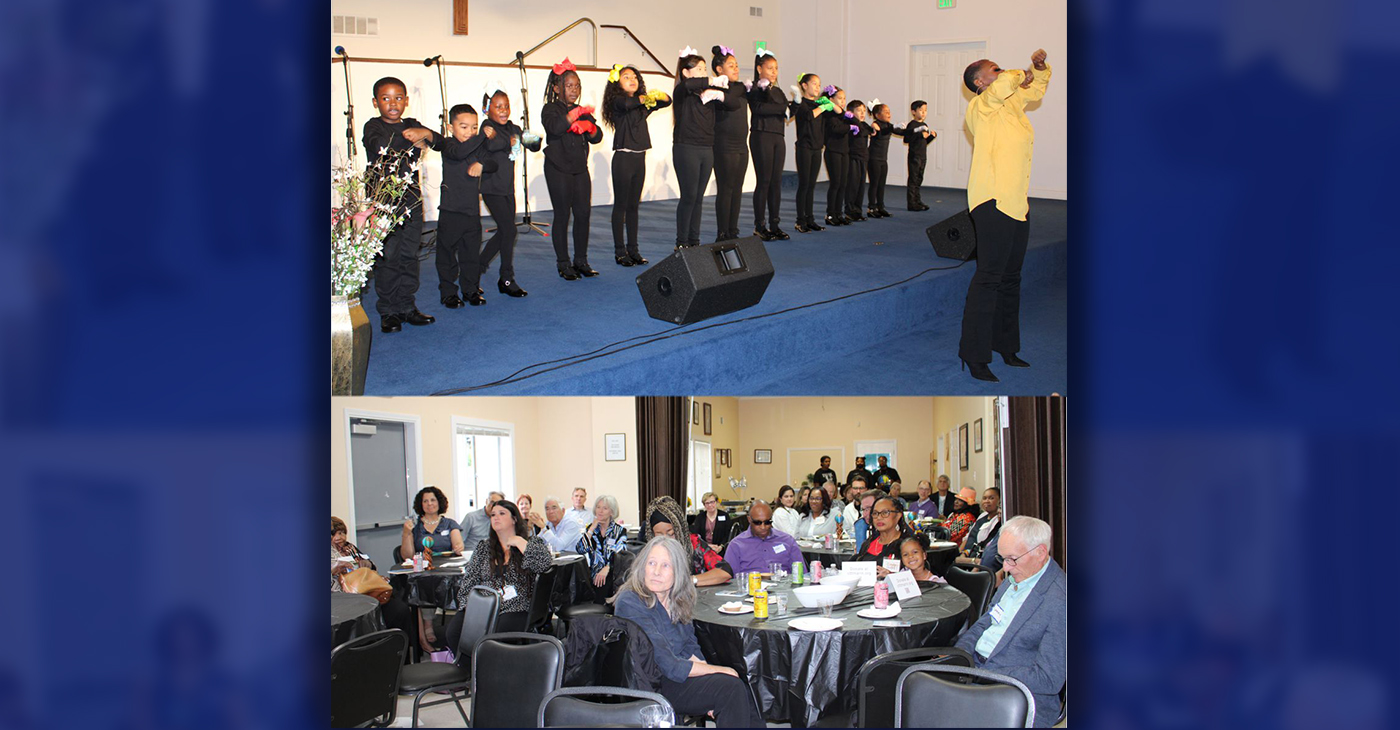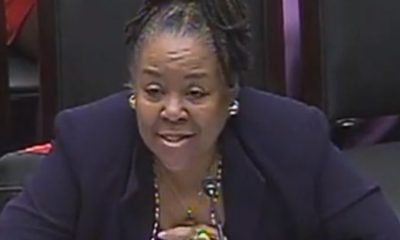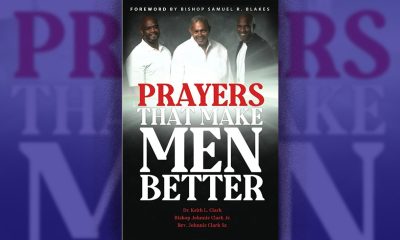Marin County
Kerner Report Set Standard for What a Serious Presidential Candidate Should Champion
As the Democratic presidential primaries move onto Nevada, South Carolina and the many Super Tuesday states, candidates turn their attention to people of color, and particularly African Americans.
Many candidates find their rhetoric contradicted by their record; their promises conflicting with their performances.
Donald Trump now seeks to woo Black voters by taking credit for the economy, by touting the first steps in reducing mass incarceration, and by hyping so-called “opportunity zones.”
His history—rising to prominence with the vile racist campaign about whether Barack Obama is American, embracing the Nazis at Charlottesville, dedicating his administration to erasing all things Obama, framing his political appeal on race-bait politics—gives the lie to his histrionics.
The same occurs on the Democratic side.
Pete Buttigieg always sounds good, but African American leaders in his town excoriate his record as mayor on race and policing. Amy Klobuchar runs as a moderate, but her brutal record as a prosecutor limits her appeal. Mike Bloomberg has the resources to flood the zone, but he too struggles to explain his harsh, racially-biased stop-and-frisk policies as mayor of New York or his laughable embrace of right-wing nutcase theories that somehow anti-redlining policies triggered the financial crisis.
Bloomberg is joined by Joe Biden on what seems like an endless apology tour.
African American voters are not easily fooled. They have a clear agenda. They suffer structural inequality—more unemployment than whites, lower wages, worse jobs, worse schools, inadequate health care, unaffordable housing, unsafe neighborhoods befouled by pollution and poisons, inadequate childcare, lack of recreational facilities, and the outrages of a criminal justice system that is structurally biased against them. They want what most Americans want, and they have a trained eye about politicians.
Notably absent from the debate is a leader prepared to be as bold and as serious about the challenges facing African Americans as the Kerner Commission was 22 years ago. The commission, chaired by Illinois Gov. Otto Kerner, was created by President Lyndon Johnson in the wake of the devastating urban riots of the late ‘60s. It included leaders from both major parties, as well as representatives of labor, the police, business and civil rights groups.
It became famous for its stark warning: “Our nation is moving toward two societies, one black, one white—separate and unequal.”
Dr. Martin Luther King pronounced the report a “physician’s warning of approaching death, with a prescription for life.” In many ways, it was the last attempt to address honestly and seriously the structural inequalities that plague African Americans.
It told harsh truths: “What white Americans have never fully understood but what the Negro can never forget—is that white society is deeply implicated in the ghetto. White institutions created it, white institutions maintain it, and white society condones it.” It concluded that one main cause of the urban violence was white racism that left too many young African Americans without hope.
It offered not nostrums and pablum but a serious agenda to redress the maladies: new jobs, new housing, an end to de facto segregation, integration of schools, daycare for children, higher wages or income supplementation, greater services, and more diverse and sensitive police forces. It did not blink at the billions that this would cost, suggesting that the cost of not acting would be far greater.
The Kerner Report—and Johnson’s War on Poverty—was lost in the jungles of Vietnam.
The costs of that misbegotten war—in money, in lives and agony, and in political upheaval—torpedoed any serious effort to address our problems at home.
What the Kerner Report did leave was a marker: a measure of what it means to be serious in addressing the problems of our society.
Much has changed over the last half-century, yet too much is the same. Affirmative action has opened closed doors for some people of color. America is more diverse, yet still deeply divided. De facto residential segregation has been largely sustained. Inequality has grown more extreme. Schools are even more divided by class and race. Affordable housing is even less available. Structural racism still stains our criminal justice system.
So, as the politicians come campaigning for African American votes, they will get a hearing.
We appreciate the attention and gestures. But the Kerner Report set the standard for what a serious leader would champion.
We’ll see who comes close, if anyone does, to accepting that challenge.
Bay Area
Marin County Board of Supervisors Honors FMBC’s 80th Anniversary
The First Missionary Baptist Church (FMBC), will be celebrating their 80th church anniversary on Sunday, Nov. 17 at 10 a.m. at 501 Drake Ave., in Marin City. The Marin County Board of Supervisors has passed a resolution to honor FMBC’s 80th anniversary.

By Godfrey Lee
The First Missionary Baptist Church (FMBC), will be celebrating their 80th church anniversary on Sunday, Nov. 17 at 10 a.m. at 501 Drake Ave., in Marin City.
The Marin County Board of Supervisors has passed a resolution to honor FMBC’s 80th anniversary. The resolution reads as follows:
- FMBC, a distinguished member of the religious community in Marin County, is celebrating its 80th Anniversary in commemoration of this significant milestone.
- FMBC has provided spiritual nurture and education to its congregation and has extended humanitarian concern and compassion throughout the Marin County community. Throughout its long and impactful history, FMBC has been guided by dedicated and faithful leaders.
- The completion of eighty years of tireless service to its congregation and community reflects the steadfast devotion of countless individuals – both religious and lay – who embody the teachings of the Lord.
- FMBC shares a unique, rich, and dynamic history with Marin City and Marin County at large, having been established in 1944 in the living room of Rev. W.E. Franklin, serving the workers of Sausalito Marinship.
- FMBC, throughout its rich 80 years of history, continues to provide service and support to Marin City and the County in the areas of mentoring, mental health advocacy, social justice, domestic & gun violence, and climate resilience.
Now, Therefore, Be It Resolved that the Marin County Board of Supervisors honors First Missionary Baptist Church on its 80th Anniversary, recognizing its profound impact on the Marin City community and its unwavering commitment to service, faith, and hope.
The Resolution was passed and adopted at a regular meeting of the Board of Supervisors of the County of Marin on Nov. 5, 2024. It was signed by Dennis Rodini, president, District 4, and District 3 Supervisor Stephanie Moulton-Peters.
Alameda County
Access Better Health with Medically Tailored Meals – Transforming Health Through Nutrition for Medi-Cal Patients
Launched in 2018, the Medically Tailored Meals pilot program was designed to help Medi-Cal patients with congestive heart failure by reducing hospital readmissions and emergency department visits by providing tailored meals meeting specific dietary needs. The program’s success in improving health outcomes and reducing costly emergency room visits encouraged the Department of Health Care Services (DHCS) to expand the Medically Tailored Meals program to all 58 counties through Medi-Cal transformation and a new set of services called Community Supports.

Advertorial
Launched in 2018, the Medically Tailored Meals pilot program was designed to help Medi-Cal patients with congestive heart failure by reducing hospital readmissions and emergency department visits by providing tailored meals meeting specific dietary needs.
The program’s success in improving health outcomes and reducing costly emergency room visits encouraged the Department of Health Care Services (DHCS) to expand the Medically Tailored Meals program to all 58 counties through Medi-Cal transformation and a new set of services called Community Supports.
Medically Tailored Meals are one of 14 new services offered through Medi-Cal that provide members with access to new and improved services to get well-rounded care that goes beyond the doctor’s office or hospital.
Medically Tailored Meals: Overview
Malnutrition and poor nutrition can lead to severe health outcomes, especially among Medi-Cal patients with chronic health conditions. Medically Tailored Meals aim to improve health outcomes, reduce hospital readmissions, and enhance patient satisfaction by providing essential nutrition.
Key Features:
- Post-Discharge Delivery: Meals are delivered to patients’ homes immediately following discharge from a hospital or nursing home.
- Customized Nutrition: Meals are tailored to meet the dietary needs of those with chronic diseases, designed by registered dietitians (RD) or certified nutrition professionals based on evidence-based guidelines.
- Comprehensive Services: Includes medically tailored groceries, healthy food vouchers, and food pharmacies.
- Educational Support: Behavioral, cooking, and nutrition education is included when paired with direct food assistance.
Key Benefits:
- Address Food Insecurity: Mitigates poor health outcomes linked to food insecurity.
- Support Complex Care Needs: Tailored to individuals with chronic conditions.
- Improve Health Outcomes: Studies show improvements in diabetes control, fall prevention, and medication adherence.
Patient Testimonial:
“My diabetes has gotten better with the meals. I’ve kept my weight down, and I feel much better now than I have in a long time. I’m one of the people this program is meant for.” — Brett
Eligibility:
- Eligible Populations: Eligible Medi-Cal members include those with chronic conditions like diabetes, cardiovascular disorders, congestive heart failure, stroke, chronic lung disorders, HIV, cancer, gestational diabetes, and chronic mental or behavioral health disorders. Also, those being discharged from a hospital or skilled nursing facility or at high risk of hospitalization or nursing facility placement are also eligible.
- Service Limitations: Up to two meals per day for up to 12 weeks, extendable if medically necessary. Meals eligible for reimbursement by alternate programs are not covered.
Cost Savings and Improved Health Outcomes:
- Health Outcomes: Research indicates a 22% to 58% decrease in emergency department visits and a 27% to 63% decrease in inpatient admissions among Medically Tailored Meals recipients, translating to significant health care cost savings.
Project Open Hand: A Success Story
Project Open Hand has been a leader in providing Medically Tailored Meals, significantly impacting the lives of Bay Area Medi-Cal patients with chronic illnesses. Since its inception, Project Open Hand has delivered nutritious meals to individuals with diabetes, HIV, and other serious health conditions, demonstrating remarkable health improvements and cost savings.
Key Achievements:
- Improved Health Outcomes: Project Open Hand’s research found a 50% increase in medication adherence among recipients of Medically Tailored Meals.
- Reduced Hospitalizations: Their program showed a 63% reduction in hospitalizations for patients with diabetes and HIV.
- Enhanced Quality of Life: Patients reported better health and increased energy levels.
Project Open Hand ensures that each meal is prepared using fresh, wholesome ingredients tailored to meet the specific dietary needs of its clients. By partnering with Medi-Cal managed care plans, Project Open Hand continues to provide life-saving nutrition to those who need it most.
Join Us in Our Mission
You can experience the profound impact of Medically Tailored Meals by joining the Medi-Cal Community Supports services initiative. Your involvement can make a difference in promoting your health through nutrition.
Learn More
For more information about Medically Tailored Meals and how to get involved, call the state’s Medi-Cal Health Care options at 800-430-4263 or contact your local managed care plan.
In Alameda County, Medi-Cal recipients can contact:
* Alameda Alliance for Health: 510-747-4567
* Kaiser Permanente: 855-839-7613
In Contra Costa County, Medi-Cal recipients can contact:
* Contra Costa Health Plan: 877-661-6230
* Kaiser Permanente: 855-839-7613
In Marin County, Medi-Cal recipients can contact:
* Partnership Health Plan of California: 800-863-4155
* Kaiser Permanente: 855-839-7613
In Solano County, Medi-Cal recipients can contact:
* Partnership Health Plan of California: 800-863-4155
* Kaiser Permanente: 855-839-7613
Your health and well-being are your health care provider’s top priority. Medically Tailored Meals are designed to enhance quality of life by advancing health care through the power of nutrition. Experience the benefits today, and take the first step toward a healthier you.
Bay Area
Marin County Seeks Input on Community Needs from Marin City, San Rafael Residents
You can make a difference. Please spend a few minutes to take the Marin County Housing & Community Needs Survey @ surveymonkey.com/r/marincountyconplan, or go to the www.marincounty.gov/conplan2025 website, and share your ideas on what Marin County’s priorities should be for the next five years.

By Godfrey Lee
You can make a difference.
Please spend a few minutes to take the Marin County Housing & Community Needs Survey @ surveymonkey.com/r/marincountyconplan, or go to the www.marincounty.gov/conplan2025 website, and share your ideas on what Marin County’s priorities should be for the next five years.
There will also be two community meetings where you can also share your ideas and concerns.
The community meeting for San Rafael will be held at the San Rafael Community Center at 618 B St. in San Rafael, on Monday Oct. 21 from 6 p.m. to 8 p.m. The meeting will be attended by the Fair Housing Advocates of Northern California.
The community meeting for Marin City will be held at the Marguerita C. Johnson Senior Center at 640 Drake Ave. in Marin City, on Tuesday, Oct. 22, from 6 p.m. to 8 p.m. The meeting will be attended by Performing Stars.
Food and Spanish translation services will be provided at all meetings. Childcare is available upon request.
-

 Activism4 weeks ago
Activism4 weeks agoOakland Post: Week of November 27 – December 3, 2024
-

 Activism2 weeks ago
Activism2 weeks agoButler, Lee Celebrate Passage of Bill to Honor Congresswoman Shirley Chisholm with Congressional Gold Medal
-

 Activism2 weeks ago
Activism2 weeks agoPost News Group to Host Second Town Hall on Racism, Hate Crimes
-

 Activism2 weeks ago
Activism2 weeks agoDelta Sigma Theta Alumnae Chapters Host World AIDS Day Event
-

 Business2 weeks ago
Business2 weeks agoLandlords Are Using AI to Raise Rents — And California Cities Are Leading the Pushback
-

 Activism3 weeks ago
Activism3 weeks agoOakland Post: Week of December 4 – 10, 2024
-

 Arts and Culture1 week ago
Arts and Culture1 week agoPromise Marks Performs Songs of Etta James in One-Woman Show, “A Sunday Kind of Love” at the Black Repertory Theater in Berkeley
-

 Activism2 weeks ago
Activism2 weeks agoOakland Post: Week of December 11 – 17, 2024




























































